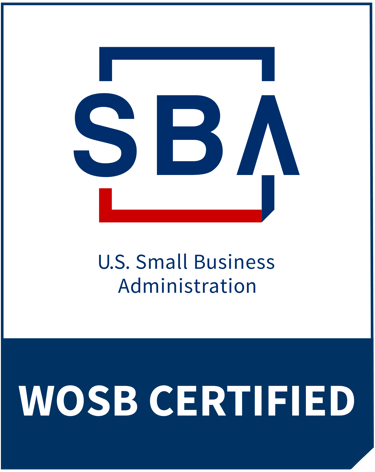Register for my upcoming The Marketing Engineer: Vibe Coding for Marketers course on Maven
Specialize or step aside: How marketers stay relevant with AI
Natalie Lambert
7/9/20255 min read


Let’s be honest: entry-level marketers are being replaced by AI. Not in theory. In practice. But let’s stop pretending this is only an entry-level problem.
Midlevel folks—the ones doing the work—are just as vulnerable. In marketing, this means the content creators, campaign managers, researchers, analysts, and channel specialists. If you’re operating horizontally, your role is already being reshaped or phased out.
The New York Times, Oxford Economics, the Federal Reserve Bank of New York, The Atlantic, The Wall Street Journal, and many more have all published some version of the same warning: the work that used to take teams of people now takes one person and a dialed-in AI workflow. Social copy. Email campaigns. Blog drafts. Competitive one-pagers. Landing pages. Slide decks. All of it compressed into hours—sometimes minutes—with the right prompts.
That’s not the future. That’s what’s happening right now.
ADP data shows that in computer-related roles, jobs for people with less than two years’ experience are down 20–25% since 2023. That’s the early signal. But the real story is broader. Layoffs aren’t just impacting recent graduates. They’re hitting mid-career operators—especially those who haven’t specialized or adapted.
This isn’t just about job loss. It’s about leverage. And the people with it today aren’t horizontal generalists. They’re vertical specialists using AI to get more done with less friction, fewer handoffs, and better results.
AI can guess. You need to know.
If your skills are broad—say, email marketing—AI is already handling parts of your job. It can write subject lines, test copy, adjust send times, and analyze performance. Without deep understanding of your audience or product, channel ownership risks becoming prompt management. True ownership comes from knowing what matters most to your buyers—and ensuring AI is amplifying that message, not just automating noise.
But if you’ve specialized—really specialized—in a core vertical of your company, something like enterprise cloud security or B2B fintech, AI becomes your co-pilot. You’re not just pushing buttons. You understand the real-world constraints: what the CISO cares about in an audit, why “SOC 2” matters in a deal cycle, and how the buying committee makes decisions. That context is what makes AI useful.
AI is powerful, but only when it's fed the right inputs. That’s what vertical expertise provides.
Product marketers and other SMEs are in a great position
Let’s say you’re working at a large tech company and you are launching a new analytics product. A few years ago, you might have had support from five different people: a writer for the blog, a social media manager for the social post, a designer for the deck, a demand gen lead for the email, and maybe an analyst for the competitive positioning.
Now? A single expert with deep product knowledge can do it all, with AI as the execution engine.
I’ve seen this firsthand. A great product marketer with deep domain knowledge can prompt for every deliverable, review the drafts, refine the messaging, and publish faster than a cross-functional team ever could. The work is better aligned and more consistent because it’s all coming from the person who understands the “why,” not just the “what.”
And this isn’t just happening in marketing. This is happening all across the organization. Stay tuned for my upcoming blog on how I couldn't find a CRM truly built for my needs as a small business, so I built one for myself, using AI for the execution.
Generalists add steps. Specialists add leverage.
Horizontal marketers—the ones floating between teams, products, and campaigns—aren’t losing relevance because they lack skills. They’re losing it because they lack context. When you’re not embedded in the product or close to the customer, everything you produce needs a second pass from someone who is. AI has only accelerated this shift: it can now turn a messaging doc into a landing page, a webinar into social posts, or a product update into an email—in seconds. So companies are asking a tough question: if the output still needs review, why not just have the person with real knowledge write the first draft too?
In this new AI-powered workflow, horizontal skills don’t speed things up—they add steps. More coordination. More handoffs. More “checking.” It’s not that these roles are obsolete, but without embedded expertise, they’ve become friction points. What’s valuable now is being close to the work, fluent in the context, and able to feed AI the inputs that only real-world understanding provides. That’s what scales. That’s what matters.
The smaller the company, the more this matters
Here’s another layer most people miss: the smaller the company, the more valuable specialist skills become, a dramatic shift from how startups used to hire. At a 10- to 15-person startup, the CTO can now write the marketing copy. Not because she’s a marketer, but because she’s deep into the product and customer pain. With AI handling the tactical work, she can get pretty far on her own.
As the company scales, that responsibility can shift to a product manager and then a product marketer—someone who still has deep context but can now scale the narrative. Eventually, at 200+ people, you get far enough from the source that you need structure, process, and handoffs. But even then, the closer the marketer is to the product and customer, the better the outcome. Every time.
Your edge is depth. Your tool is AI.
While this shift won’t happen overnight, the signal is clear. Smaller companies are already hiring differently. Without layers of legacy roles to protect, they’re leaning into vertical specialists who can move fast with AI. Mid-sized companies will follow as they streamline teams for speed and context. At larger companies, the shift will take longer—but that’s your window. If you’re there, use it. Build depth now, before the structure shifts beneath you.
If you’re a marketer, here’s my advice:
Get specific. Pick a vertical specialty—an industry, a customer type, a product category—and go deep. Surface-level skills won’t carry you much longer. Use AI to build that depth. Take a walk with ChatGPT’s Advanced Voice Mode and ask it everything you’ve been too hesitant to ask your product team: What keeps our buyers up at night? What metrics do they care about? Where are they trying to go in five years? AI isn’t just a tool for output—it’s a tool for understanding. The faster you internalize your customers’ world, the more irreplaceable you become.
Use AI every day. The only way to stay sharp is to build with it, write with it, and think through it. Make it work for you. Create your own team of AI assistants. Test their limits. Let them handle the routine while you focus on what still needs human judgment. The more you understand what these tools can do, the clearer it becomes where your value still stands out.
Don’t wait. The people already using AI to scale their expertise aren’t just moving faster—they’re defining what “good” looks like. If you can’t prompt AI with the kind of insight that speaks your customer’s language and reflects their real priorities, someone else will. And they’ll do it better, faster, and more convincingly.
The marketers who thrive in this new era won’t be the ones who can prompt AI the fastest. They’ll be the ones who understand the customer deeply enough to guide it.

